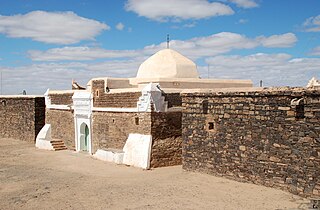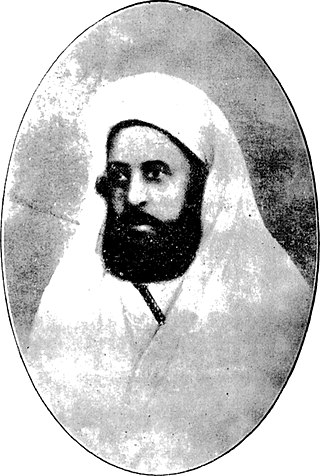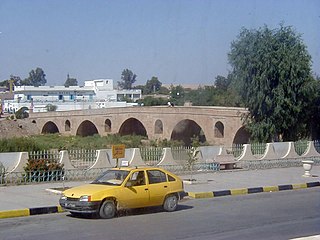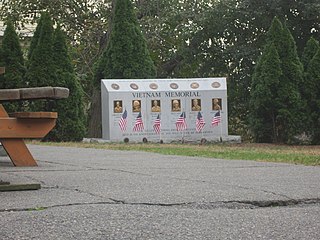Related Research Articles

MoulayYusef ben Hassan, born in Meknes on 1882 and died in Fes in 1927, was the 'Alawi sultan of Morocco from 1912 to 1927. He was the son of Hassan I of Morocco, who was the son of Muhammad IV of Morocco.

Smara is a city in the Moroccan-controlled part of Western Sahara, with a population of 57,035 recorded in the 2014 Moroccan census. It is served by Smara Airport and Smara bus station.

Spanish Sahara, officially the Spanish Possessions in the Sahara from 1884 to 1958, then Province of the Sahara between 1958 and 1976, was the name used for the modern territory of Western Sahara when it was occupied and ruled by Spain between 1884 and 1976. It had been one of the most recent acquisitions as well as one of the last remaining holdings of the Spanish Empire, which had once extended from the Americas to the Spanish East Indies.

Mohamed Mustafa Ma al-'Aynayn was a Saharan Moorish religious and political leader who fought French and Spanish colonization in North Africa. He was the son of Mohammed Fadil Mamin, and the elder brother of shaykh Saad Bouh, a prominent marabout in Mauritania.

Sir Hamilton Alexander Rosskeen Gibb, known as H. A. R. Gibb, was a Scottish historian and Orientalist.

MawlayHassan bin Mohammed, known as Hassan I, born in 1836 in Fes and died on 9 June 1894 in Tadla, was a sultan of Morocco from 12 September 1873 to 7 June 1894, as a ruler of the 'Alawi dynasty. He was proclaimed sultan after the death of his father Mawlay Muhammad bin Abd al-Rahman. Mawlay Hassan was among the most successful sultans. He increased the power of the makhzen in Morocco and at a time when so much of the rest of Africa was falling under foreign control, he brought in military and administrative reforms to strengthen the regime within its own territory, and he carried out an active military and diplomatic program on the periphery. He died on 9 June 1894 and was succeeded by his son Abd al-Aziz.

Majaz al Bab, also known as Medjez el Bab, or as Membressa under the Roman Empire, is a town in northern Tunisia. It is located at the intersection of roads GP5 and GP6, in the Plaine de la Medjerda.

Belchite is a municipality and town in the province of Zaragoza, Spain, about 40 km southeast of Zaragoza. It is the capital of Campo de Belchite comarca and is located in a plain surrounded by low hills, the highest of which is Lobo. The surrounding area is one of the most arid places of Aragon.

George Joseph Bates was a member of the United States House of Representatives from the state of Massachusetts. Born in Salem, Massachusetts, he served in the Massachusetts House of Representatives 1918–1924. Bates was then elected Mayor of Salem in 1924 at the age of 33. He served as mayor until 1937, at which time he was sworn in as a Republican member of the House in the 75th Congress. During World War II, he was an interventionist. After the fall of France and before the Nazi invasion of Soviet Russia, Britain was effectively fighting the Nazis alone, throughout this time period Bates was outspokenly pro-British, and he advocated aiding Britain in any way possible, in order to help in their war against the Nazis. In 1941 he was one of the few Republicans to abstain from voting on the 1941 Lend Lease Act. Bates voted in favor of arming merchant ships. Bates made good on his campaign promises and voted to increase lend-lease funding to the British military as well as food aid for British civilians during the Blitz. Bates was subsequently re-elected six times.

Ahmed al-Hiba, was a leader of an armed resistance to the French colonial power in Western Sahara, and was Blue Sultan of Morocco. In English texts he is usually named simply El Hiba. In addition to his revolutionary activity, Ahmed al-Hiba was a prolific poet.

Xavier Coppolani (1866-1905) was a French military and colonial leader, who was instrumental in the colonial occupation and creation of modern-day Mauritania.

The Emirate of Trarza was a precolonial state in what is today southwest Mauritania. It has survived as a traditional confederation of semi-nomadic people to the present day. Its name is shared with the modern Region of Trarza. The population, a mixture of Berber tribes, had been there for a long time before being conquered in the 11th century by Hassaniya Arabic speakers from the north. Europeans later called these people Moors/Maures, and thus have titled this group "the Trarza Moors".

Givenchy-lès-la-Bassée is a commune in the Pas-de-Calais department in the Hauts-de-France region of France.
Abu Abd Allah Mohammed ibn Mohammed ibn Abd Allah ibn Tijillat al-Hazmiri al-Marrakushi was a Moroccan writer of the 14th century, member of the zawiyya Hazmiriyya and author of Itimid al-aynayn wa-nushat an-nazir in fi manaqib al-ahawayn Abi Zayd wa-Abi Abd Allah al-Hazmiryyayn.

Tell Ain el Meten is a tell in the area of El Meten in the Rashaya District, south-eastern portion of the Bekaa Governorate of the Republic of Lebanon. It is located opposite the village of Sawiri.

The Battle of Sidi Bou Othman was an important battle fought at Sidi Bou Othman, some 40 kilometers north of Marrakesh, during the French conquest of Morocco. It saw the victory of a French column under Colonel Charles Mangin over the forces of the south Moroccan leader Ahmed al-Hiba in September 1912. As a result of the victory, the French captured the city of Marrakesh and annexed southern Morocco into the French protectorate of Morocco. The conquest was facilitated by the defection of the great qaids of the south, notably the El Glaoui brothers.

Sahrawi Arab Democratic Republic–Spain relations are the current and historical relations between the Sahrawi Arab Democratic Republic and Spain.

The Bombardment of Casablanca was a French naval attack taking place from August 5 to 7 in 1907 that destroyed the Moroccan city of Casablanca. France used mainly artillery fire from armored cruisers to bomb the city and targets in the surrounding area, which caused an estimated 1,500 to 7,000 Moroccan deaths. The bombardment of Casablanca opened a western front to the French conquest of Morocco after Hubert Lyautey's occupation of Oujda in the east earlier that year.

The Charlestown Vietnam Veterans Memorial is a war memorial commemorating six local men who died who during the Vietnam War, installed outside Veterans Memorial Hall in Charlestown, Boston, in the U.S. state of Massachusetts. The memorial was dedicated in April 2009.

The Hafidiya was a coup d'état in Morocco between 1907 and 1908 in which Abd al-Hafid seized power from his brother Abdelaziz. Abd al-Hafid started his movement in Marrakesh in the aftermath of the Algeciras Conference, the French occupation of Oujda and of Casablanca and the gaining the support of Amazigh leaders in the south. The Ulama of Fes supported Abdelhafid only with an unprecedented Conditioned Bay'ah, or pledge of allegiance.
References
- ↑ "Ma al-'Aynayn's Anti-Colonial Insurgency | the Polynational War Memorial". www.war-memorial.net. Retrieved 2024-05-06.